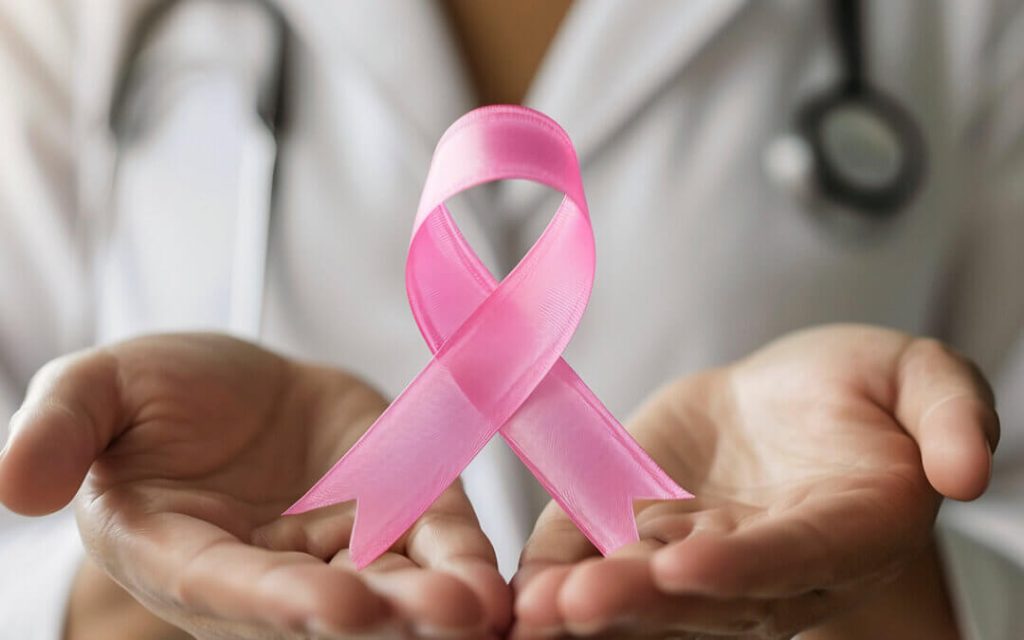October is recognized globally as Breast Cancer Awareness Month (BCAM), a campaign aimed at educating and raising awareness about the devastating effects of breast cancer. This year’s theme is “No one should face breast cancer alone.”
Cancer is globally recognized as one of the leading and major contributors of morbidity and mortality with an estimated over 19.3 million new cases and almost 10 million deaths in 2020.
In 2020, Nigeria recorded an estimated 124,815 new cancer cases and 78,899 cancer-related deaths, primarily from breast, cervical, and prostate cancers. The country is projected to experience an increase in cancer incidence by 2040.
Women face the most significant risk factor for breast cancer, with about 99 per of cases and only 0.5–1 per cent in men.
Breast cancer is one of the most prevalent cancers in Nigeria. It constitutes a significant portion of the cancer cases diagnosed annually. According to the Global Cancer Observatory (GLOBOCAN) data, an estimated 26,000 new breast cancer cases are reported in Nigeria every year, making it the most common cancer among Nigerian women. Mortality rates are high, mostly due to late diagnosis and limited access to advanced treatment options.
Most breast cancer cases in Nigeria are diagnosed at an advanced stage, reducing treatment options and survival rates.
The World Health Organization (WHO) highlighted that barriers within the health system, along with patient-related factors like low awareness and knowledge, contribute to limited use of early detection services, leading to late-stage diagnoses and poorer outcomes.
Nigerian women are diagnosed with breast cancer at a younger age, with a significant number of cases occurring before the age of 50
Many women have little or no knowledge about breast cancer risk factors and symptoms
Nigerian women are more frequently diagnosed with triple-negative breast cancer, an aggressive form of the disease, than women of European ancestry.
Research has shown that Black women are more likely to die from breast cancer than women of any other racial or ethnic group.
Breast cancer death rates have declined across all other racial and ethnic groups since the 1990s, but the numbers have remained either stagnant or increasing among black women.
Black women have a 5% lower incidence of breast cancer compared to white women; however, they face a 38% higher risk of dying from the disease.
The federal government established the National Institute for Cancer Research and Treatment (NICRAT) to improve cancer research, prevention, treatment, and care. While this is commendable, implementation is still a big challenge given the fast rise of the disease.
The WHO states that over 50% of cancer patients need radiotherapy as part of their treatment, especially for common cancers such as breast, cervical, colorectal, and lung cancers.
One of the most pressing challenges in cancer treatment in Nigeria is the limited availability of radiotherapy equipment. Linear accelerator (LINAC) machines, essential for effective radiotherapy in cancer treatment, remain in short supply across the country.
Compared to other countries with a smaller population, like South Africa and Egypt, Nigeria has a small number of functional LINAC machines located in major cities like Lagos and Abuja. However, due to the high demand, these facilities often struggle with patient loads, leading to long waiting times for radiotherapy sessions.
Equally concerning is a recent report indicating an increase in early-onset cancer rates among individuals in their 20s, 30s, and 40s, especially for colorectal, breast, and pancreatic cancers, which is currently under investigation.
This trend is disturbing because these cancers typically affect older adults. It has been noticed in 24 countries.
Many Nigerian women diagnosed with breast cancer often face financial, social, and psychological hardships. The stigma associated with cancer, limited knowledge of the disease, and inadequate treatment facilities are among the barriers that make this battle even more challenging for many individuals and families.
By supporting one another and fostering a community of care, we move closer to a future where breast cancer is manageable, treatable, and eventually, a thing of the past.
